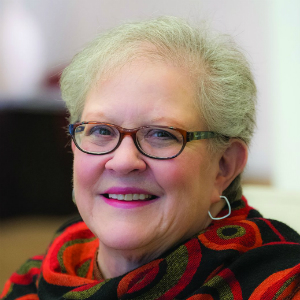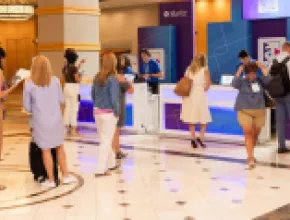- What sort of communication before the meeting should be done with attendees?
- How helpful is event insurance? I've received information and don't know if this is something we need to have.
- I have an event that draws attendees from over 30 different countries. What type of additional things do I need to keep in mind for my attendees’ safety?
- I am having trouble getting event management companies to revise their contracts to include risk management verbiage. They are telling me to sign it or don't exhibit. Suggestions?
- What would be the recommended plan of action in regard to food poisoning?
- At what point do you ask these questions? Prior to signing a contract?
- Do you have one main crisis management plan that you just recycle and update to fit each client meeting/location, or is it better to start from scratch each time?
- Does this make sense to have ALL of this information for smaller meetings 15-200 people?
- For example, would you currently recommend a cruise to a client in light of the Costa Concordia and the recent robbery in Mexico during a cruise ship day excursion?
- How does one avoid the paralysis of analysis while attempting to provide your client a memorable experience that may carry risk?
- We consider our emergency response plans (ERP) a component of larger corporate business continuity planning (BCP) requirements, including record retention, system backups, calling tree hierarchy, etc.,-can you comment on or have you heard any distinction between the two, or differences in how they are interpreted?
- What types of questions in case of emergency should be included on a registration form?
- Is there something in your registration form that you should have so you are not held liable for various issues that come about, like accidents?
At the very least, ensure each guest room has easily found/visible information about evacuation and emergency communication.
Before arrival, recommend the best method of transferring from the airport or train to the venue.
Pre-arrival or on site:
- Provide suggested routes for running/walking.
- Remind people to not wear their badges outside the meetings area and especiallly to not wear them when out on the street. Ditto logoed conference bags, which should not be carried when out.
- If the city has a reputation for unlicensed cabs soliciting business at airports or elsewhere, suggest that people only ride in licensed cabs and how you can recognize them.
- Have someone do a “flight attendant” routine at the start of each session, announcing the emergency exits and noting what to do in the event of an emergency.
Coordinate all this with the venue and with other vendors.
Yes, lots of different kinds to cover various risks. Most often purchased: cancellation and interruption insurance. It is always best to talk with your company’s insurance provider to find out what and how the company and its meetings (and staff and volunteers) are covered.
Another potential risk is ensuring music played and heard is licensed. Go to www.bmi.com/licensing/tradeshow and ascap.com/licensing/types.html for more information.
Doing meetings in any venue is risky; for meetings outside one’s home country, it is always best to first check the U.S. State Department’s lists for warnings. (See additional resources.) My overarching advice is be aware, know your audience, pay attention to the news, including weather, that may impact travel or those countries, and prepare everyone with advance information, including the need for visas, passports, currency.
Prepare your audience with protocol tips. A “slight” may turn into an international incident.
In addition to STEP (See resources.), make contact with the US Embassy in any country to which you are traveling and know how to reach them in the event of any emergency. If, for example, there is an illness for a participant from another country, know the procedures at local hospitals and clinics and by what method they accept payment. If there’s a death of a person attending your meeting from a country in which the meeting is not being held, you are likely to need help to get the body prepared and returned.
Remember too that language can be a barrier to safety. Even if, say, English is the language of the meeting, I’d still want to know how emergency procedures will be communicated to all. In a panic situation, we are likely to forget what we know. If the language in which it is being communicated is not our spoken language, we may misinterpret. Know your audience and perhaps print emergency and evacuation procedures in multiple languages and distribute them to all participants.
It would also be useful to have a list of all the Embassies and Consulates and the contact information for the countries of those attending the meeting. Having had a situation where someone from another country needed assistance, I was grateful to have the ability to locate help quickly.
If I understand this question correctly, your company exhibits at others’ meetings and there is nothing about risk or liability in the contracts. If that is the case, go back to the entity that is asking your company to sign and ask them to clarify in writing their reason for not including it. You might also ask the decorator for their input.
FIRST: During site selection and site inspection, find out the food safety record of the venue: hotel, restaurant, convention center, etc. Ask to see their food safety inspection certificates and ask about how their food handlers are certified and recertified.
THEN: Determine how food will be kept at appropriate temperature before it is served. (I am a fan of “pre-plated” items for the time-saving; I am not a fan for their food safety qualities.) If you are doing buffets or receptions, question even more about food temperature and cross-contamination safety.
In the event of an outbreak of food poisoning--or even one person who has an allergic reaction--immediately ask the facility to call 911. (When you determine where to have your event, ask how close the nearest hospital or emergency facilities are and the average time it takes to get to the meeting venue and then to act.) The facility will have a process by which they work with the city’s health department to determine the cause and will provide further advice.
Cover the questions in your RFP when selecting destinations, venues and vendors. I’ve put a sample of some of the questions we ask in the area for additional resources.
Ah! I recycle…sort of. I use the same format (see Table of Contents) and change the information to be specific to the client, meeting, destination, venue/s, vendors, time of year, etc. Once developed, it’s a good guideline. The worst thing, though, is to not review it with a fine-tooth comb and revise the information from another meeting.
For me, yes. Of course, I always look for emergency exits when I’m at lunch or dinner with colleagues or friends or at the movies or in the theater! Each of us/each group is responsible for the safety of people and property when we do a meeting. Although I can’t demand everyone do it, it’s what I recommend.
Similarly: Do you have a way to handle clients who want to go somewhere you don't recommend and still want you to source the contract.
These are tough questions. Let me tell you what I would do, personally and professionally, and let you decide what you think is best:
Cruise ships like any venue can be risky. We’ve seen some incidents lately that tell me that there are some risks that are recurring, and with that in mind, I’d look first at safety--for a ship or any venue--and their record of safety and their plan for any contingency. Even for a hotel, I’d want to know if they’ve had an outbreak of the NoroVirus, for example, or what their back-up plan is for a power outage or if there have been robberies of guests inside or around the property.
Regarding recommending any destination or venue: Ask lots of questions first--about risk as well as “rates/dates/space” and amenities. If you are not recommending any destination or venue (or vendor), provide back-up about why. For safety, I’d make a strong case, with facts, about why the particular group is, in your research, possibly at risk.
And yes, clients are still going to say, “Oh it won’t happen to us,” and say they still want to book. In that case, I’d want it in writing that they acknowledge my professional advice and research and have decided to move ahead. (Be sure you have insurance to protect you if anything happens.) Do your best and be your most persuasive with facts.
Laughing ‘cause you’re asking the wrong person! I see risk everywhere. And I think that there is no event or meeting that doesn’t carry risk. Think about it: People eating, drinking, breathing, walking, talking--all risky.
Maybe think of it the same way we planners plan: like ducks, we glide across water while paddling like crazy underneath. You do the analysis and preparation; you prepare the client for what they need to know; you ensure safety and a memorable event.
Bonus Questions
Great observation and question. The answer is “it depends.” Recently, I talked with a group of industry professionals who said their companies had great BCPs and, as part of their ERPs, had great evacuation procedures for their offices. They, however, had no plans at all for their off-site meetings and, in fact, didn’t factor in on-site meetings to the ERPs. Sometimes meetings, except for financial and data, are overlooked when companies develop BCPs. Talk with those who developed the BCP and the ERP as a component and ask them how meetings, on- and off-site, and business travel are covered.
I think it’s important to have the person’s full name, emergency contact person (day and evening, office and personal) and all contact data. That includes phone numbers and if texting is possible to that person at that number (because sometimes texts go through when calls or e-mail don’t). Asking what the person needs to fully participate in the meeting should give you information about disabilities, food allergies, etc. With that information you can plan better to keep each person safe.
Note: There is a privacy factor to consider. This information should be available to very few. If your meeting participants are all company employees, your HR department may have the information but it may not be available to you on-site at a meeting. Determine what you need and discuss it with HR to ensure privacy and safety.
Jeff King, an attorney, who was for years counsel to the CIC, said, “It doesn’t matter if you are right or wrong, you can still be sued.” I’m not a lawyer and for this, I suggest you ask legal counsel. And even if you have something, I’d still want to prepare for any contingency.






